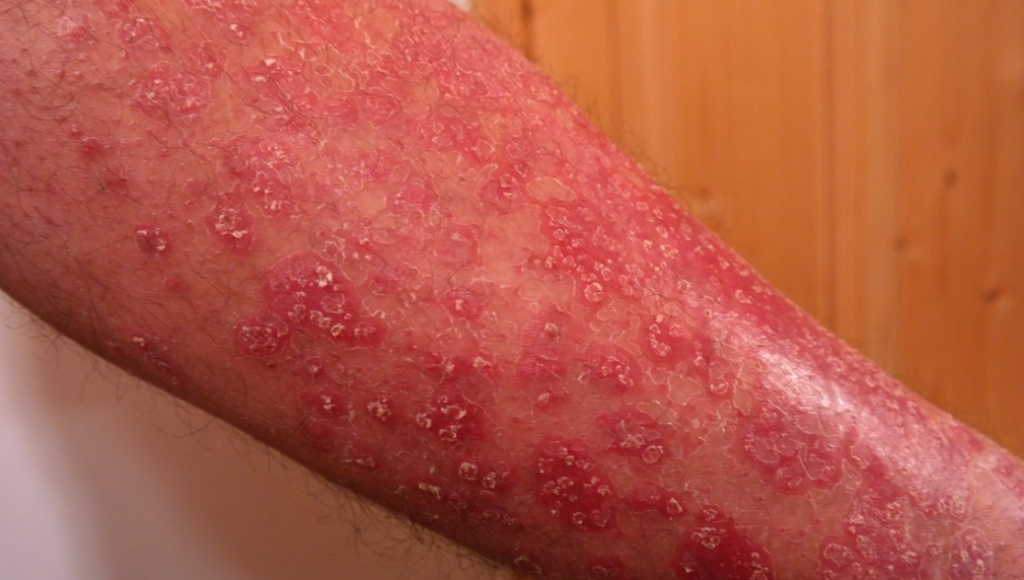What is Psoriasis? What Causes Psoriasis? How to Treat Psoriasis?
Psoriasis is an autoimmune chronic skin disease that can be treated with the right kind of medication. This article will explore the ins and outs of psoriasis, what causes it, and how to treat it.
Psoriasis is a long-term skin condition that causes a buildup of skin cells on the surface of the body. It can be caused by a number of factors including genetics, environment, stress, injury or infection. There are two types of psoriasis; plaque psoriasis and guttate psoriasis. The treatment for both types is similar but guttate psoriasis may be managed with less medication than plaque psoriasis due to its smaller severity.
Guttate Psoriasis
One of the common types of psoriasis is guttate psoriasis. It is usually triggered by a streptococcal sore throat. This form of psoriasis is characterized by red, scaly spots on the elbows, knees, and trunk. The most common cause of guttate psoriasis are strep throat sores that result in an autoimmune response.
Plaque Psoriasis
The cause of plaque psoriasis is not known and there is no cure for it. The only way to treat it is through topical medications, UV light therapy, and/or oral medications. The most common form of psoriasis is plaque psoriasis. It typically starts with red patches on the skin that gradually grow into thick, raised, and scaly plaques. These plaques may be painful or itch at times but usually have silvery scales on the surface that resemble dandruff.

How to Identify the Difference Between Other Skin Conditions and Psoriasis
Psoriasis is a chronic skin condition that affects the skin, and sometimes the nails, joints, or knees. The word psoriatic comes from a Greek word for "itching." A lot of people have this misconception that they can get psoriasis from being bitten by an insect or a mosquito. But in reality, psoriasis isn't contagious at all - it's just hereditary.
Locations
Psoriasis is a skin disease that causes patches of skin to become red, scaly, dry and itchy. The location of psoriasis on the body varies depending on what part of the body is affected.
Psoriasis can be found in the following locations:
- The scalp
- On elbows
- On knees
- Between toes
- In between fingers
Triggers for Psoriasis
Some psoriasis foods can aggravate the condition, while others may help manage the symptoms. It is important to discuss any changes in diet with your doctor before implementing them as some dietary changes can have drastic effects on your symptoms.
There are many possible triggers for psoriasis, including: genetic factors, stress, infections, physical trauma to the skin, certain medications and smoking cigarettes.
Treatment for Psoriasis
Psoriasis can be treated by using a variety of different methods including topical treatments, phototherapy, oral medications, injections or surgery. Topical treatments are the most commonly used method for treating psoriasis due to their ease of use and affordability.
The main topical treatment options include ointments, creams, lotions, gels or sprays that contain a combination of ingredients such as coal tar extractives or corticosteroids (steroids).
Topical treatments can help to reduce scaling and inflammation by reducing the numbers of inflammatory cells in the affected area.
Best supplements for Psoriasis
Some people find relief by drinking more water, using different types of lotions, taking baths with Epsom salt, and using topical creams to treat their condition. These treatments are temporary and only provide a small amount of relief. However, supplements can often provide relief on a more long-term basis.
Some common supplements for psoriasis are omega fatty acids, vitamin D3, fish oil, turmeric or curcumin extract (an extract from the root of the turmeric plant), magnesium citrate or taurine. These supplements work because they reduce inflammation and promote healthy skin cells renewal.
Please call Superior Compounding Pharmacy in Plymouth Michigan to speak with one of our licensed pharmacists today at 734-404-6065. We can help answer any medication questions that you may have.
[embed]https://youtu.be/8CWDWrl7ZAw[/embed]